
The Charismatic Charm of Westend in Frankfurt
Westend in Frankfurt is a delightful blend of historic elegance and modern sophistication. Known for its grand 19th-century villas, tree-lined streets, and proximity to Frankfurt's bustling financial district, Westend offers a serene escape while being just a stone's throw away from the city center. This area is a haven for both history buffs and contemporary art enthusiasts, with its mix of old-world architecture and modern galleries. Strolling through Westend, visitors will find themselves surrounded by beautifully preserved buildings, many of which house embassies, law firms, and upscale residences. The neighbourhood's lush parks, such as Grüneburgpark and Palmengarten, provide perfect spots for relaxation and picnics. These green oases are particularly popular during the warmer months, offering a peaceful retreat from the urban hustle. Culturally, Westend does not disappoint. The area is home to the Senckenberg Museum, one of Germany's largest natural history museums, which is a must-visit for families and science enthusiasts. For those interested in architecture, the Westend Synagogue stands as a poignant reminder of the neighbourhood's rich Jewish heritage. Additionally, the Goethe University campus, with its impressive Main Building, adds a youthful and intellectual vibe to the area. Dining in Westend is a treat for the senses. The neighbourhood boasts a variety of gourmet restaurants, cozy cafes, and trendy bars. Whether you're in the mood for traditional German cuisine or international flavors, Westend's culinary scene has something to offer every palate. In the evenings, the neighbourhood's sophisticated nightlife comes alive, with elegant wine bars and chic lounges providing the perfect setting for a night out.
Local tips in Westend
- Visit Grüneburgpark and Palmengarten for a relaxing day amidst nature.
- Explore the Senckenberg Museum for an educational experience with the whole family.
- Take a stroll through the Goethe University campus to soak in the academic atmosphere.
- Dine at one of Westend's gourmet restaurants for a taste of local and international cuisine.
- Check out the Westend Synagogue to learn about the neighbourhood's Jewish heritage.
The Charismatic Charm of Westend in Frankfurt
Westend in Frankfurt is a delightful blend of historic elegance and modern sophistication. Known for its grand 19th-century villas, tree-lined streets, and proximity to Frankfurt's bustling financial district, Westend offers a serene escape while being just a stone's throw away from the city center. This area is a haven for both history buffs and contemporary art enthusiasts, with its mix of old-world architecture and modern galleries. Strolling through Westend, visitors will find themselves surrounded by beautifully preserved buildings, many of which house embassies, law firms, and upscale residences. The neighbourhood's lush parks, such as Grüneburgpark and Palmengarten, provide perfect spots for relaxation and picnics. These green oases are particularly popular during the warmer months, offering a peaceful retreat from the urban hustle. Culturally, Westend does not disappoint. The area is home to the Senckenberg Museum, one of Germany's largest natural history museums, which is a must-visit for families and science enthusiasts. For those interested in architecture, the Westend Synagogue stands as a poignant reminder of the neighbourhood's rich Jewish heritage. Additionally, the Goethe University campus, with its impressive Main Building, adds a youthful and intellectual vibe to the area. Dining in Westend is a treat for the senses. The neighbourhood boasts a variety of gourmet restaurants, cozy cafes, and trendy bars. Whether you're in the mood for traditional German cuisine or international flavors, Westend's culinary scene has something to offer every palate. In the evenings, the neighbourhood's sophisticated nightlife comes alive, with elegant wine bars and chic lounges providing the perfect setting for a night out.
Iconic landmarks you can’t miss
Palmengarten Frankfurt
Discover a world of plants in the heart of Frankfurt: Explore themed gardens, tropical glasshouses, and family-friendly activities at the enchanting Palmengarten.
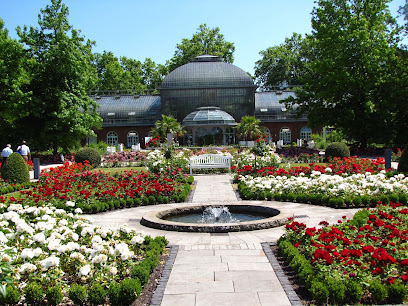
MesseTurm
Experience Frankfurt's iconic MesseTurm, a symbol of architectural innovation and economic power, with its distinctive design and the renowned 'Hammering Man' sculpture.
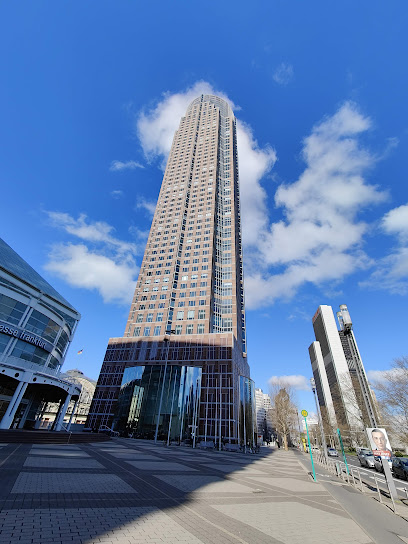
Frankfurter Märchenbrunnen
Discover Frankfurt's enchanting Fairy Tale Fountain, a stunning Art Nouveau masterpiece on Willy-Brandt-Platz, where myth and beauty intertwine in the heart of the city.
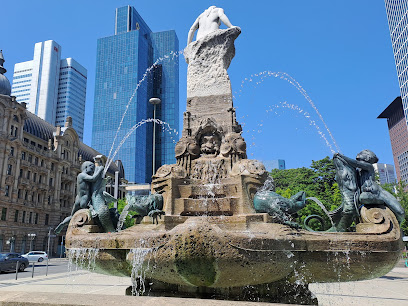
Marshall-Brunnen
Discover the Marshall-Brunnen in Frankfurt: a historical fountain honoring George C. Marshall and offering a tranquil escape in the heart of the city's Taunusanlage park.
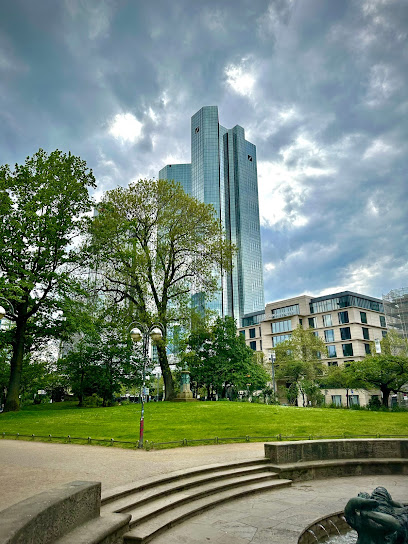
Ring der Statuen
Discover the Ring der Statuen in Frankfurt's Rothschildpark: a captivating circle of bronze figures by Georg Kolbe, blending classical beauty with historical reflection and serene park ambiance.
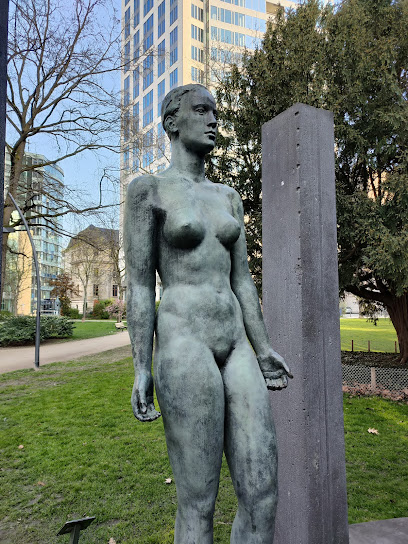
Olymp von Weimar
Discover Frankfurt's green heart: Gallusanlage, a tranquil park where art, history, and nature converge amidst the city's modern skyline, offering a serene escape.
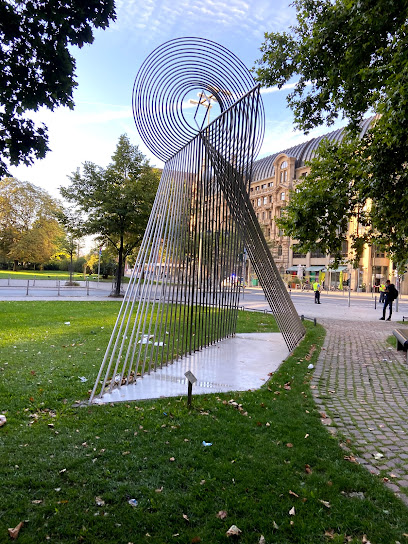
Die Welt
Explore Die Welt in Frankfurt – a stunning public art monument that transforms urban space into a canvas of creativity and inspiration.
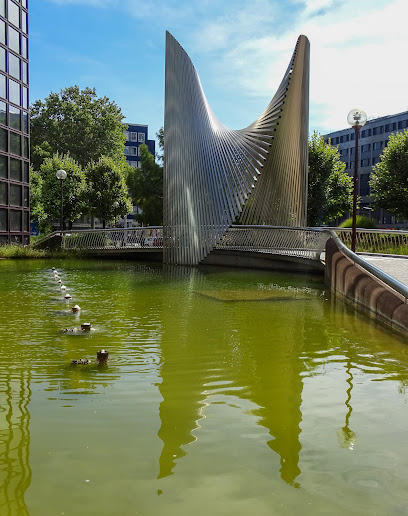
Husarendenkmal Frankfurt am Main
A solemn tribute to the soldiers of the 13th Hussar Regiment, the Husarendenkmal in Frankfurt offers a space for reflection on duty, sacrifice, and remembrance amidst the city's vibrant landscape.
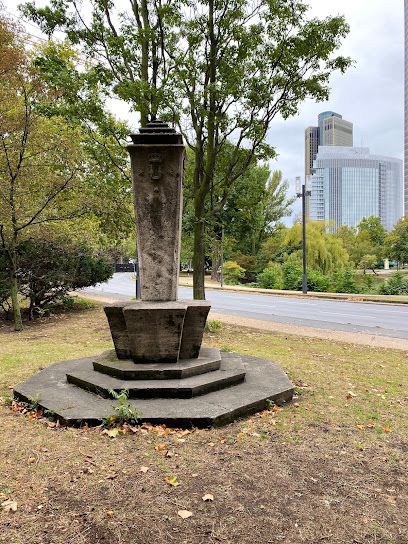
Bockenheimer Warte (Wartturm)
Discover Frankfurt's Bockenheimer Warte: A medieval watchtower seamlessly blending history with modern art, surrounded by a vibrant square and the iconic 'crashing tram' U-Bahn entrance.
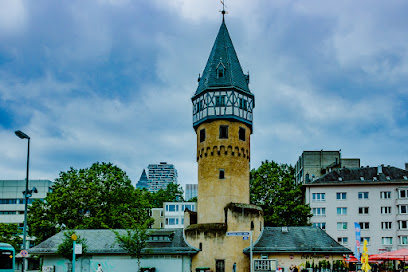
Westend Tower
Discover Frankfurt's iconic Westend Tower: A symbol of architectural innovation, financial power, and historical significance in the heart of the city's vibrant Westend district.
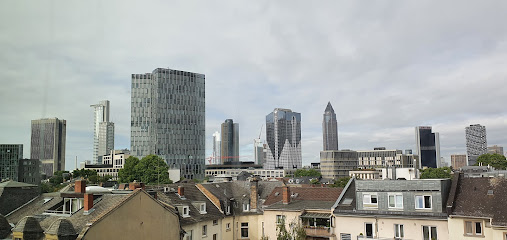
holocaust memorial sign and pictures
A poignant Holocaust memorial in Frankfurt on Grüneburgweg, offering a space for reflection and remembrance of the city's decimated Jewish community during World War II.
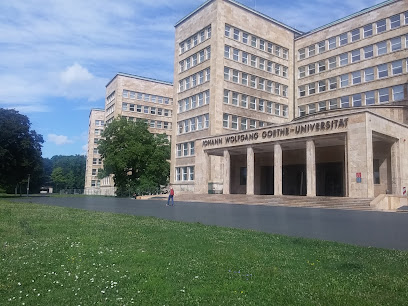
Unmissable attractions to see
Römerberg
Explore the historic Römerberg square in Frankfurt, a charming blend of medieval architecture and vibrant culture at the heart of the city.
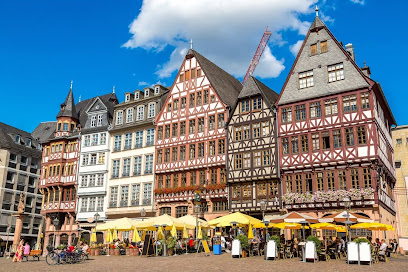
Iron Footbridge
Experience the charm of Frankfurt at the Iron Footbridge, a historic landmark offering breathtaking views and a vibrant atmosphere along the Main River.
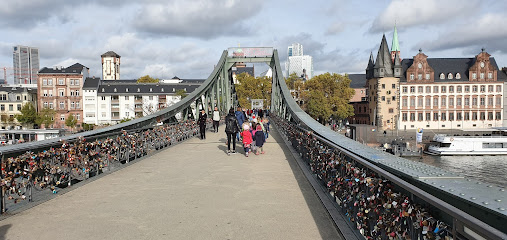
Zoo Frankfurt
Immerse yourself in nature at Zoo Frankfurt, where wildlife conservation meets family fun in a lush urban oasis.
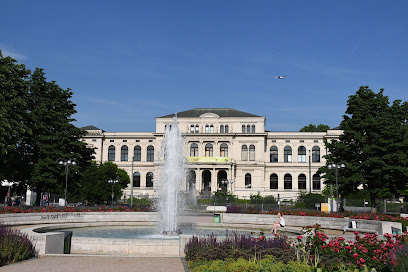
Städel Museum
Explore the Städel Museum in Frankfurt, a captivating art destination showcasing masterpieces from the Middle Ages to modern times.
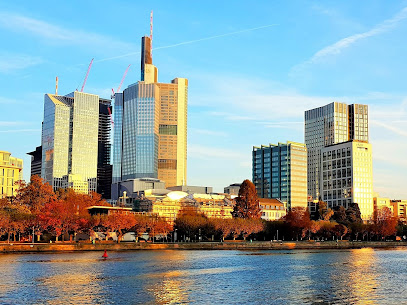
Nizza
Explore Nizza, Frankfurt's serene state park along the Main River, filled with beautiful gardens and a perfect retreat for nature lovers.
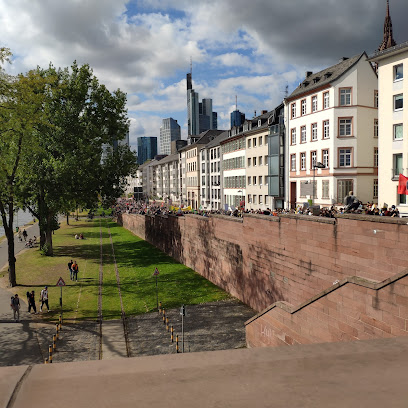
Bethmann Park
Experience the tranquility of Bethmann Park, a beautiful state park in Frankfurt, perfect for relaxation and leisurely exploration amidst stunning gardens.
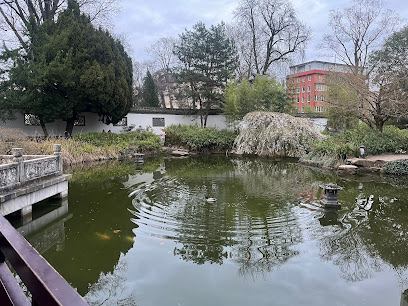
Goethe House
Discover the birthplace of Johann Wolfgang von Goethe, a literary gem in Frankfurt that celebrates the life and works of Germany's greatest writer.
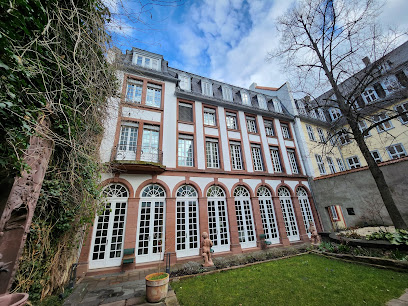
Grüneburg park
Discover the tranquility of Grünewald Park in Frankfurt, an urban oasis featuring lush gardens, playgrounds, and scenic walking paths for all ages.
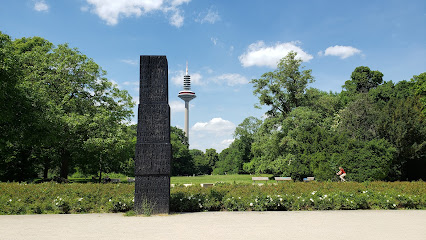
Senckenberg Nature Museum
Explore the Senckenberg Nature Museum in Frankfurt, a premier destination for discovering the wonders of our planet's biodiversity and natural history.
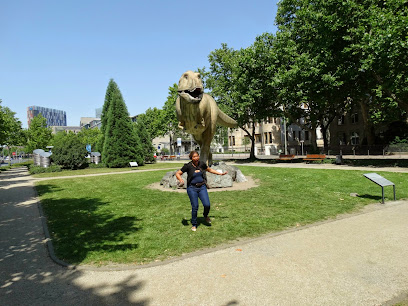
MAIN TOWER
Discover breathtaking views and the vibrant skyline of Frankfurt from the observation deck of MAIN TOWER, an iconic tourist attraction in Germany.
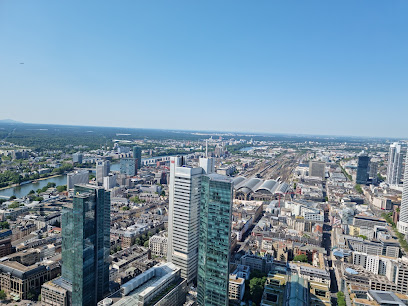
Tropicarium
Discover the tranquility of Tropicarium—Frankfurt's botanical garden, a lush paradise filled with vibrant flora and serene landscapes.
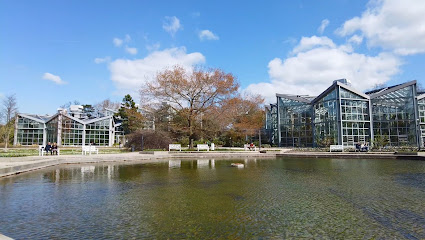
Bockenheimer Warte (Wartturm)
Explore the iconic Bockenheimer Warte in Frankfurt, a historic tower that showcases the city's architectural beauty and rich cultural heritage.
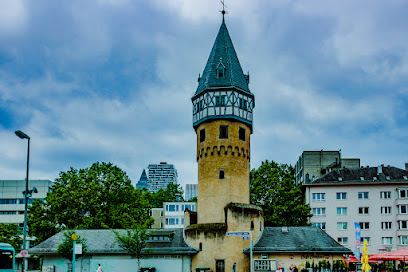
Grotte
Explore the Grotte at Palmengarten: A serene botanical sanctuary in Frankfurt showcasing nature's finest flora amidst tranquil surroundings.
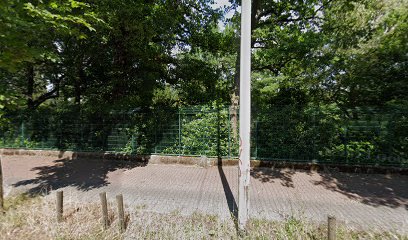
Steppenanlage und Insektenwiese
Explore Frankfurt's Steppenanlage and Insektenwiese, a captivating garden with subantarctic plants and vibrant insect life, perfect for nature lovers.

Essential places to dine
BLOCK HOUSE Frankfurt Westend
Indulge in exquisite steaks at BLOCK HOUSE Frankfurt Westend - where tradition meets flavor in every bite.
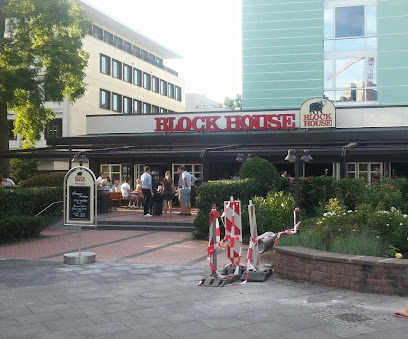
Takumi
Savor authentic Japanese ramen at Takumi in Frankfurt – where tradition meets flavor in every bowl.
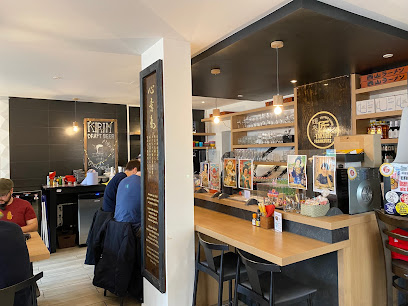
Via Monte Napoleone Restaurant
Experience authentic Italian cuisine in an elegant setting at Via Monte Napoleone, one of Frankfurt's finest restaurants.
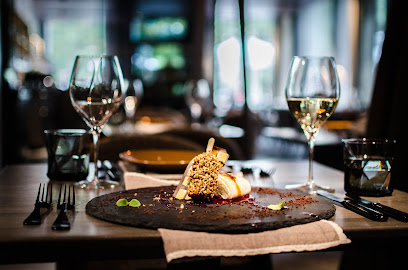
Azzurro - La Cucina Italiana
Experience authentic Italian cuisine at Azzurro in Frankfurt – where every dish tells a story.
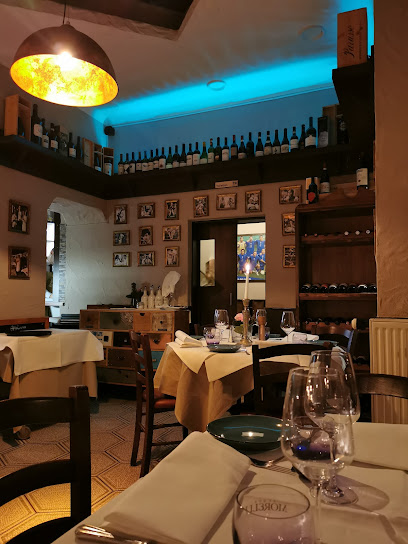
Restaurant Alte Kanzlei Inh. Luigi Riitano
Experience authentic Italian cuisine at Restaurant Alte Kanzlei in Frankfurt - where tradition meets elegance for an unforgettable dining experience.
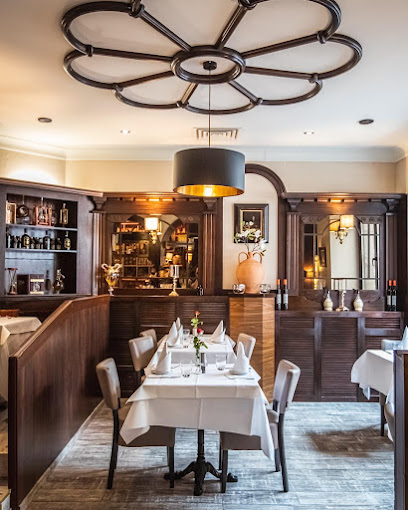
La Scuderia
Experience authentic Italian flavors at La Scuderia in Frankfurt, where tradition meets modernity in every delightful dish.
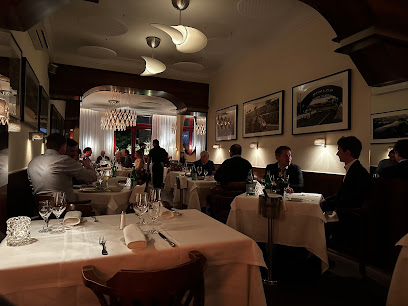
Restaurant Classico
Experience authentic Mediterranean cuisine at Restaurant Classico in Frankfurt - where every meal is a delightful journey through Italy's rich culinary traditions.
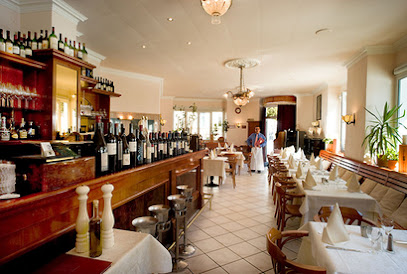
Knoblauch
Discover Knoblauch in Frankfurt: A premier destination for authentic French cuisine with exquisite flavors and elegant ambiance.
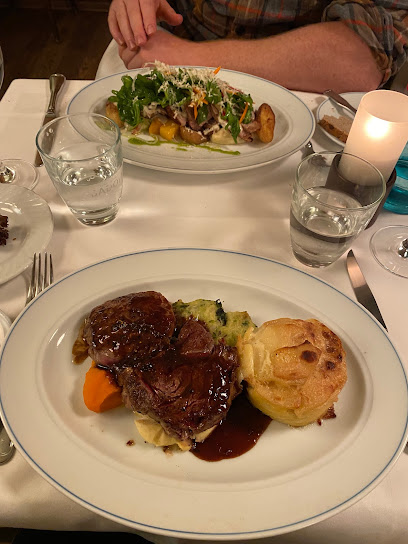
Allgaiers Restaurant
Experience culinary excellence at Allgaiers Restaurant in Frankfurt – where tradition meets innovation in every exquisite dish.
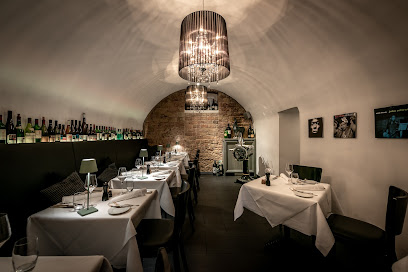
Restaurant Peysk
Experience innovative cuisine at Restaurant Peysk in Frankfurt, where local ingredients meet modern culinary artistry.
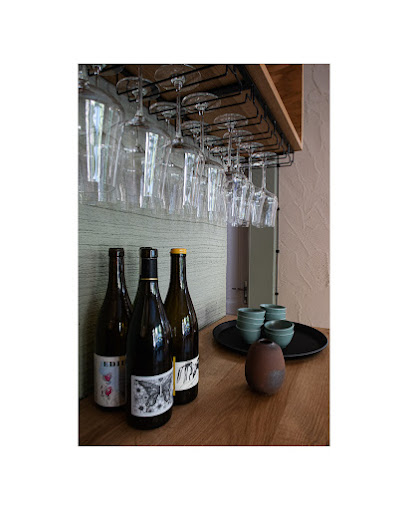
Markets, malls and hidden boutiques
MyZeil
Experience the ultimate shopping destination in Frankfurt at MyZeil, where modern design meets a wealth of retail and dining options.
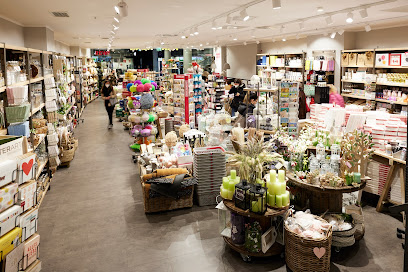
Skyline Plaza
Explore Skyline Plaza in Frankfurt: A vibrant shopping mall with diverse retail, dining, and leisure experiences in the heart of the city.
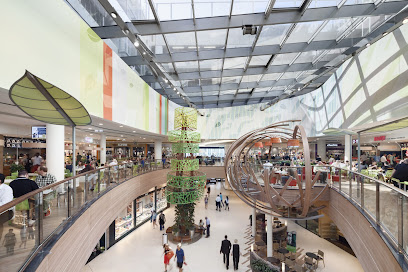
Primark
Discover affordable fashion and style at Primark in Frankfurt, the ultimate shopping destination for trendy apparel and accessories.
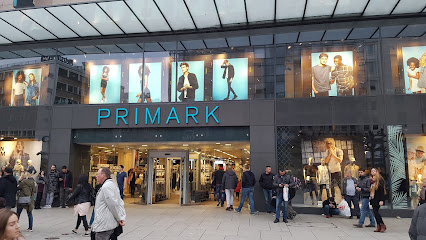
Urban Outfitters
Discover unique gifts and fashionable apparel at Urban Outfitters in Frankfurt, where style meets urban culture in a trendy shopping experience.
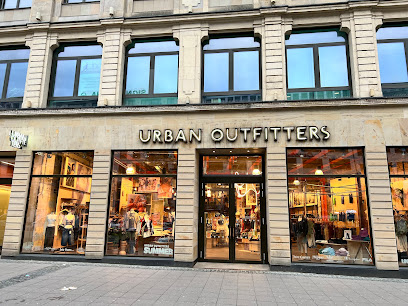
CHANEL BOUTIQUE FRANKFURT
Explore the elegance of CHANEL Boutique Frankfurt, where luxury fashion meets exquisite craftsmanship in the heart of the city.
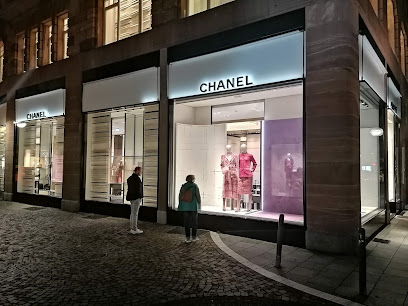
The Listener GmbH
Explore the latest fashion trends at The Listener GmbH, a stylish clothing store in the heart of Frankfurt, perfect for fashion enthusiasts and trendsetters.
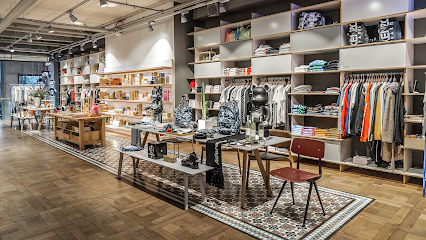
Seiko Boutique
Explore the elegance and craftsmanship of Seiko watches at Seiko Boutique in Frankfurt, a must-visit for watch enthusiasts and collectors.
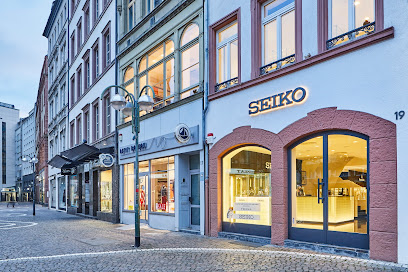
SPAZIO CONCEPT STORE
Explore the chic and eclectic SPAZIO CONCEPT STORE in Frankfurt, where fashion meets creativity in a unique shopping experience.
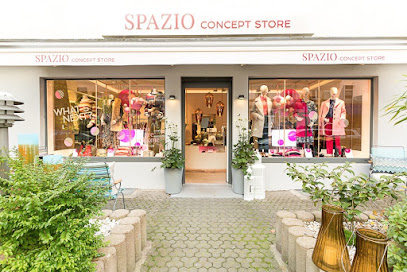
TUTTO...
Discover TUTTO in Frankfurt for trendy women's clothing and accessories that embody the city's fashion spirit.
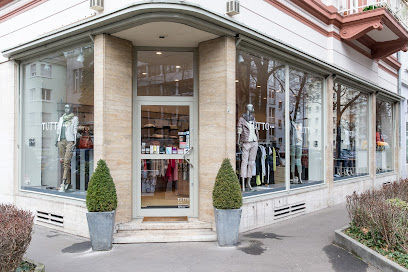
Wolford Boutique Frankfurt
Explore Wolford Boutique Frankfurt, your go-to destination for luxury women's fashion, exquisite lingerie, and stylish accessories in the heart of the city.
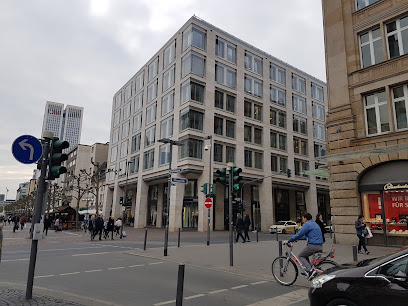
Essential bars & hidden hideouts
The Fox and Hound
Experience the perfect blend of grilled delights and a warm atmosphere at The Fox and Hound in Frankfurt, a must-visit for every traveler.
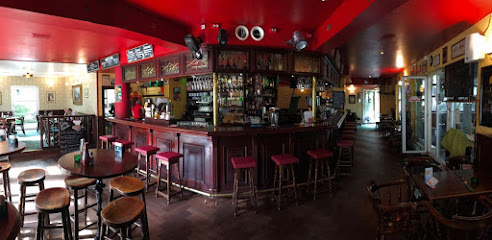
Hunky Dory Bar - Frankfurt am Main
Experience the vibrant nightlife at Hunky Dory Bar, Frankfurt's premier cocktail destination with exquisite drinks and an energetic atmosphere.
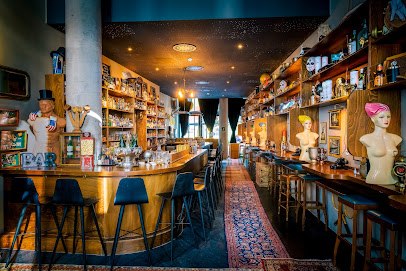
TapHouse Frankfurt
Discover the vibrant flavors of modern Indian cuisine at TapHouse Frankfurt, a unique gastropub experience in the heart of the city.
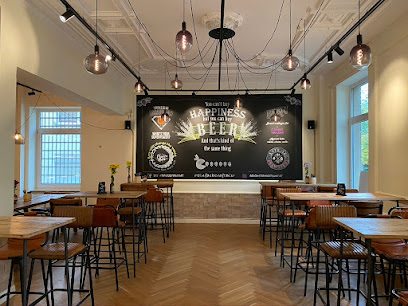
Jimmy's Bar Frankfurt
Experience the vibrant nightlife of Frankfurt at Jimmy's Bar, where exquisite cocktails and live music come together for an unforgettable evening.
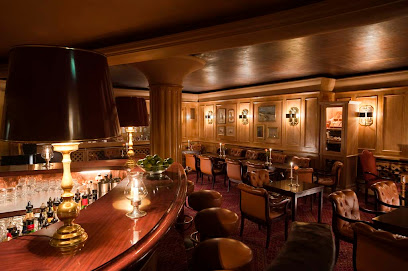
Copper Bar Frankfurt
Discover Copper Bar Frankfurt: A chic blend of cocktails, ambiance, and event space in the heart of the city.
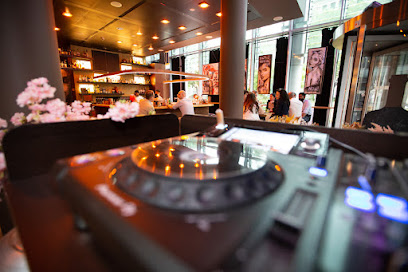
Oceans Restaurant Bar & Lounge
Experience the best of seafood dining at Oceans Restaurant Bar & Lounge in Frankfurt, where Mediterranean flavors meet a chic dining atmosphere.
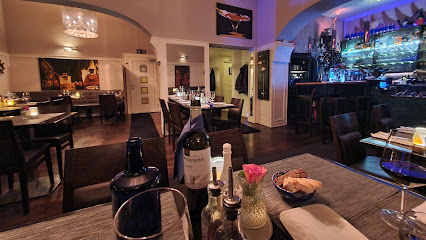
Westbar
Experience the vibrant nightlife at Westbar, a trendy bar in Frankfurt offering creative cocktails and a lively atmosphere for all occasions.
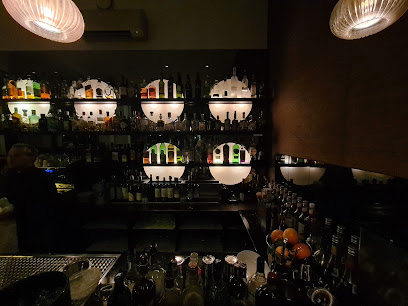
L'UNICO Wine Bar
Experience the finest wines and a cozy atmosphere at L'UNICO Wine Bar, a hidden gem in Frankfurt perfect for any wine lover.
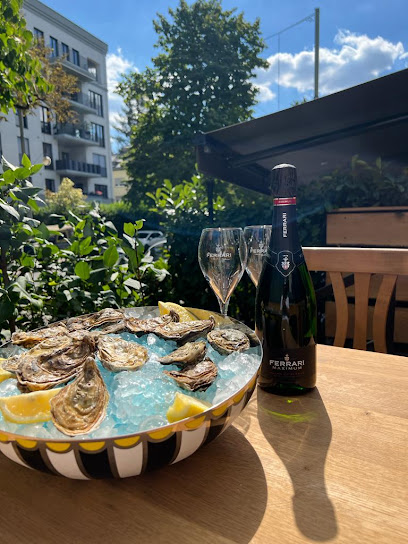
HORIZON BAR
Discover the elegance of Horizon Bar in Frankfurt, where stunning skyline views meet exquisite cocktails in a sophisticated atmosphere.
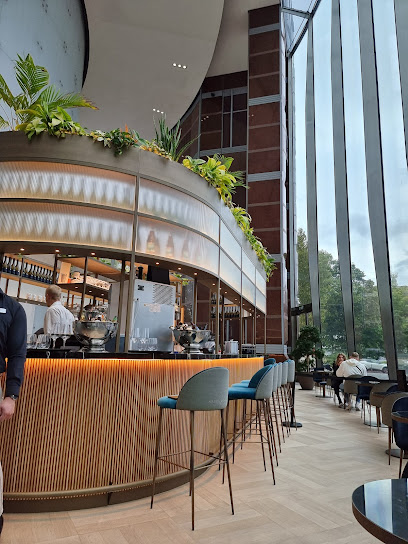
Alto Bar
Experience the charm of Alto Bar in Frankfurt, where relaxation meets vibrant local culture in a cozy setting.
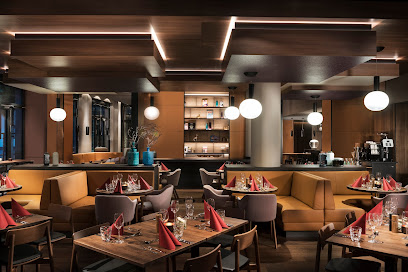
Local Phrases
-
- HelloHallo
[hah-loh] - GoodbyeAuf Wiedersehen
[owf vee-der-zay-en] - YesJa
[yah] - NoNein
[nine] - Please/You're welcomeBitte
[bih-tuh] - Thank youDanke
[dahn-kuh] - Excuse me/SorryEntschuldigung
[ent-shool-dee-goong] - How are you?Wie geht es dir?
[vee gayt es deer] - Fine. And you?Gut. Und dir?
[goot oont deer] - Do you speak English?Sprechen Sie Englisch?
[shpreh-khen zee eng-lish] - I don't understandIch verstehe nicht
[ikh fer-shtay-uh nikht]
- HelloHallo
-
- I'd like to see the menu, pleaseIch würde gerne die Speisekarte sehen, bitte
[ikh vur-deh gehr-neh dee shpy-zuh-kahr-teh zay-en, bih-tuh] - I don't eat meatIch esse kein Fleisch
[ikh ess-uh kine flysh] - Cheers!Prost!
[prohst] - I would like to pay, pleaseIch möchte bitte bezahlen
[ikh mehrkhte bih-tuh beh-tsah-len]
- I'd like to see the menu, pleaseIch würde gerne die Speisekarte sehen, bitte
-
- Help!Hilfe!
[hil-feh] - Go away!Geh weg!
[geh vehg] - Call the Police!Rufen Sie die Polizei!
[roo-fen zee dee poh-lee-tsey] - Call a doctor!Rufen Sie einen Arzt!
[roo-fen zee iyn-en artsht] - I'm lostIch habe mich verirrt
[ikh hah-buh meesh fer-eert] - I'm illIch bin krank
[ikh been krahngk]
- Help!Hilfe!
-
- I'd like to buy...Ich würde gerne kaufen...
[ikh vur-deh gehr-neh kow-fen] - I'm just lookingIch schaue nur
[ikh shou-eh noor] - How much is it?Wie viel kostet es?
[vee feel koh-stet es] - That's too expensiveDas ist zu teuer
[dahs ist tsoy toy-er] - Can you lower the price?Können Sie den Preis senken?
[kern-en zee den prees zayn-ken]
- I'd like to buy...Ich würde gerne kaufen...
-
- What time is it?Wie spät ist es?
[vee shpet ist es] - It's one o'clockEs ist ein Uhr
[es ist iyn oor] - Half past (10)Halb (zehn) vor
[hahlp (tsayn) for] - MorningMorgen
[mor-gen] - AfternoonNachmittag
[nahk-mit-tahk] - EveningAbend
[ah-bend] - YesterdayGestern
[geh-stern] - TodayHeute
[hoy-teh] - TomorrowMorgen
[mor-gen] - 1Eins
[ines] - 2Zwei
[tsvai] - 3Drei
[dry] - 4Vier
[feer] - 5Fünf
[foonf] - 6Sechs
[zeks] - 7Sieben
[zee-ben] - 8Acht
[ahkt] - 9Neun
[noyn] - 10Zehn
[tsayn]
- What time is it?Wie spät ist es?
-
- Where's a/the...?Wo ist ein/der...?
[voh ist iyn/dehr] - What's the address?Was ist die Adresse?
[vahs ist dee ah-dreh-suh] - Can you show me (on the map)?Können Sie mir zeigen (auf der Karte)?
[kern-en zee meer tsay-gen (ouf dehr kar-teh)] - When's the next (bus)?Wann kommt der nächste (Bus)?
[vahn kohmt dehr nekhs-teh (boos)] - A ticket (to ....)Eine Fahrkarte (nach ....)
[iyn-uh fahr-kar-teh (nahkh ....)]
- Where's a/the...?Wo ist ein/der...?
History of Westend
-
Westend began to take shape in the late 19th century, emerging as a fashionable residential area for the affluent middle class and industrialists. Its development was spurred by the expansion of Frankfurt's economy and the establishment of the Frankfurt Stock Exchange. This period saw the construction of grand villas and mansions, reflecting the architectural styles of the time, such as Wilhelminian and Art Nouveau.
-
By the early 20th century, Westend became a cultural center. The area was home to numerous artists, intellectuals, and musicians, contributing to Frankfurt's rich cultural tapestry. Notable figures such as the writer Hermann Hesse and the composer Paul Hindemith were associated with the neighborhood, which fostered an environment of creativity and innovation.
-
The devastation of World War II had a profound impact on Westend, with many buildings damaged or destroyed during the air raids on Frankfurt. Post-war reconstruction led to significant changes in the urban landscape, as modernist and contemporary designs replaced some of the original architecture. However, efforts were made to preserve key historical structures, maintaining a sense of the neighborhood's rich past.
-
In the latter half of the 20th century, Westend transitioned into a financial district, with the establishment of numerous international banks and corporate offices. The presence of the European Central Bank and other financial institutions has contributed to the area’s reputation as a key financial hub in Europe. This shift has led to a blend of residential and commercial spaces, altering the character of the neighborhood.
-
Today, Westend is characterized by a mix of historic architecture and modern developments. The neighborhood is known for its green spaces, such as the Palmengarten, and cultural institutions like the Frankfurt Opera. It continues to attract a diverse population of professionals, artists, and families, reflecting both its historical legacy and its role as a vibrant urban center within Frankfurt.
Westend Essentials
-
Westend is easily accessible from various parts of Frankfurt. If you are coming from the city center, take the U6 or U7 subway lines to the Westend station. The main train station, Frankfurt Hauptbahnhof, offers connections via tram and bus services to Westend. For those arriving from the airport, take the S8 or S9 lines towards Hanau or Offenbach, and transfer to the U6 or U7 at Hauptbahnhof.
-
Westend is well-connected by public transport, including U-Bahn (subway), S-Bahn (commuter trains), and buses. The U6 and U7 lines run through the neighborhood, making it easy to navigate. Bicycles are a popular mode of transport, with bike lanes available. Consider using a rental bike for a more local experience. Walking is also an excellent way to explore the area, especially its beautiful parks and historic architecture.
-
Westend is generally a safe neighborhood; however, standard precautions should be taken. Avoid poorly lit areas at night and be mindful of your belongings in crowded places. Areas with higher crime rates in Frankfurt are typically around the main train station and certain parts of Bahnhofsviertel, which are best avoided after dark.
-
In case of emergency, dial 112 for fire and medical services or 110 for police assistance. The nearest hospital is the Frankfurt University Hospital, located on Theodor-Stern-Kai. Always have travel insurance that covers emergencies. Pharmacies are widely available for minor health issues, and many have English-speaking staff.
-
Fashion: Do dress smartly, as Westend is known for its upscale vibe. Avoid overly casual or beachwear. Religion: Do respect local customs, especially in religious buildings. Public Transport: Do give up your seat for those in need. Don’t talk loudly or eat on public transport. Greetings: Do greet locals with a firm handshake and a smile. Eating & Drinking: Do try local dishes and enjoy meals at outdoor cafes. Don’t waste food, as it is considered disrespectful.
-
To experience Westend like a local, take a stroll through the Palmengarten, one of the largest botanical gardens in Germany. Visit the weekly farmers' market on Holzhausenstraße for fresh produce and local products. Engage in conversations with residents at local cafes, and don’t miss the chance to enjoy the vibrant street art found throughout the neighborhood. Exploring the architecture, particularly the Gründerzeit buildings, is also a must.
Nearby Cities to Westend
-
Things To Do in Heidelberg
-
Things To Do in Koblenz
-
Things To Do in Wurzburg
-
Things To Do in Bonn
-
Things To Do in Rothenburg ob der Tauber
-
Things To Do in Cologne
-
Things To Do in Stuttgart
-
Things To Do in Echternach
-
Things To Do in Grevenmacher
-
Things To Do in Remich
-
Things To Do in Vianden
-
Things To Do in Dusseldorf
-
Things To Do in Diekirch
-
Things To Do in Strasbourg
-
Things To Do in Clervaux










